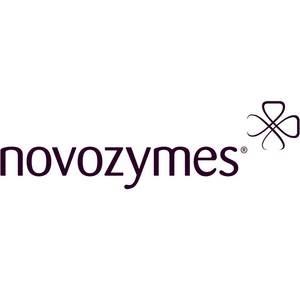Novozymes, Saipem collaborate on CO2 capture

December 15, 2021
BY Novozymes
Novozymes, the world leader in biological solutions, and Saipem, an advanced technological and engineering platform for safe and sustainable complex infrastructure and plants, have signed a collaboration agreement for the development of innovative solutions for enzymatic carbon capture.
As part of the agreement, Saipem—which owns an enzyme-based CO2 capture technology—will be responsible for providing process, mechanical and equipment design, while Novozymes will provide enzymes while further optimizing the process through enzymes innovation.
Advertisement
Advertisement
Enzymatic carbon capture is more sustainable in environmental terms and more cost-effective compared to traditional CO2 capture processes. In fact, it is based on the use of enzymes that require the input of heat at lower temperatures and a significantly moderate use of chemicals, energy and, consequently, cuts down the production of harmful waste. Furthermore, this process is more reliable, as the carbonates and enzymes, being low corrosion materials, minimize the deterioration of equipment.
Saipem and Novozymes are mutually satisfied with the signed agreement which constitutes an important step towards realizing innovative solutions for the reduction of greenhouse gas emissions. In fact, thanks to Saipem's expertise in CO2 capture and storage technologies and Novozymes' cutting-edge enzymes solutions, the two companies can make the enzymatic carbon capture process highly competitive on the market of traditional amine processes.
“This collaboration is an important step towards more sustainable solutions for lowering greenhouse gas emissions. Enzymatic carbon capture has the potential to replace resource-heavy processes with energy-efficient, biological processes, providing both environmental and financial benefits while accelerating the battle against climate change,” says Amy Byrick, executive vice president of strategy and business transformation at Novozymes.
Advertisement
Advertisement
Related Stories
The U.S. Energy Information Administration maintained its forecast for 2025 and 2026 biodiesel, renewable diesel and sustainable aviation fuel (SAF) production in its latest Short-Term Energy Outlook, released July 8.
XCF Global Inc. on July 10 shared its strategic plan to invest close to $1 billion in developing a network of SAF production facilities, expanding its U.S. footprint, and advancing its international growth strategy.
U.S. fuel ethanol capacity fell slightly in April, while biodiesel and renewable diesel capacity held steady, according to data released by the U.S. EIA on June 30. Feedstock consumption was down when compared to the previous month.
XCF Global Inc. on July 8 provided a production update on its flagship New Rise Reno facility, underscoring that the plant has successfully produced SAF, renewable diesel, and renewable naphtha during its initial ramp-up.
The USDA’s Risk Management Agency is implementing multiple changes to the Camelina pilot insurance program for the 2026 and succeeding crop years. The changes will expand coverage options and provide greater flexibility for producers.
Upcoming Events










